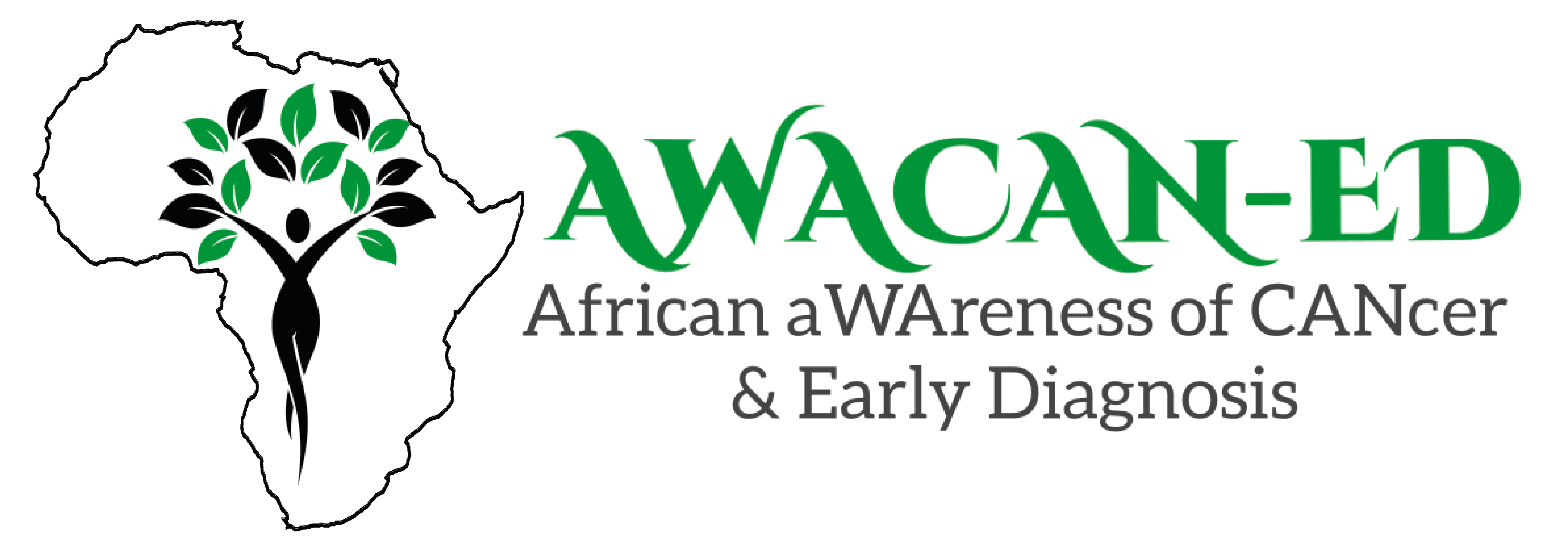Factors associated with breast cancer stage at diagnosis among women enrolled for the AWACAN-ED study in Zimbabwe
Zvikomborero Satuku, one of the AWACAN-ED Scholars from Zimbabwe, discusses the challenges facing breast cancer diagnosis in Zimbabwe and describes her Masters research.
Breast cancer is a disease that arises primarily in the ducts or lobules of the breast. Initially, the cancerous growth is confined to the duct or lobule and is referred to as ‘in situ’, where it typically causes no symptoms and has minimal potential for distant spread (metastasis). However, over time, these in situ cancers can progress to invasive breast cancer, where the malignant cells invade the surrounding breast tissue. Invasive cancers have a greater potential to spread to nearby lymph nodes and distant organs in the body, most commonly the lungs, liver, bones, or brain [1,2].
There were an estimated 2.3 million new cases of breast cancer and 670,000 deaths reported globally in 2022 [1]. According to the 2022 Zimbabwe National Cancer registry report breast cancer ranks as the second most common cancer among women, following cervical cancer, and accounts for approximately 21% of all female cancer cases [3].
 Early detection and timely intervention are crucial for improving patient outcomes, as the stage of breast cancer at the time of diagnosis is a critical determinant of prognosis. Early-stage breast cancer (stages I and II) is typically associated with higher survival rates compared to advanced-stage disease (stages III and IV). This highlights the importance of awareness, regular screenings, and access to healthcare services, which can significantly impact survival and quality of life for women diagnosed with breast cancer [1,2].
Early detection and timely intervention are crucial for improving patient outcomes, as the stage of breast cancer at the time of diagnosis is a critical determinant of prognosis. Early-stage breast cancer (stages I and II) is typically associated with higher survival rates compared to advanced-stage disease (stages III and IV). This highlights the importance of awareness, regular screenings, and access to healthcare services, which can significantly impact survival and quality of life for women diagnosed with breast cancer [1,2].
The aim of my study is to compare and analyze the presentation patterns of early-stage and advanced stage breast cancer among women participating in the AWACAN-ED study in Zimbabwe and identify key characteristics associated with each stage at diagnosis.
This study will compare the sociodemographic, clinical and healthcare-related factors associated with early-stage and advanced stage breast cancer presentation among women enrolled for the AWACAN-ED study in Zimbabwe.
The specific aims are:
- To describe the socio-demographic characteristics
- To determine the proportion of women with self-reported history of clinical breast examination
- To evaluate the proportion of women who experienced symptoms of breast cancer prior to their diagnosis
- To analyse the pathological features of breast tumors at the time of diagnosis
- To identify the factors that distinguish between those with early-stage and advanced stage breast cancer
Outcomes and impact
By identifying the factors associated with breast cancer stage at diagnosis, women and policymakers can collaboratively enhance early detection and improve health outcomes. Empowering women with knowledge about breast cancer, its symptoms, and the importance of regular screenings is crucial in fostering proactive health behaviors. Additionally, ensuring equitable access to healthcare services is a vital step in the fight against breast cancer. This includes initiatives to reduce financial barriers, increase awareness in underserved communities, and promote healthcare infrastructure. Together, these efforts can lead to timely diagnoses and better prognoses, ultimately saving lives and improving the quality of life for women affected by breast cancer [4,5].
References
- www.who.int/news-room/fact-sheets/detail/breast-cancer
- Factors associated with diagnostic and pre‐treatment intervals among breast cancer patients attending care at the Uganda Cancer Institute: A cross‐sectional study – PMC
- www.afro.who.int/countries/zimbabwe/news/zimbabwe-updates-national-cancer-control-plan-mitigate-increase-cases-country
- Women’s knowledge, attitudes and practices (KAP) relating to breast and cervical cancers in rural Zimbabwe: a cross sectional study in Mudzi District, Mashonaland East Province | BMC Public Health | Full Text
- Breast cancer in Zimbabwe: patterns of care and correlates of adherence in a national referral hospital radiotherapy center cohort from 2014 to 2018 – PMC
 Zvikomborero is working as a medical laboratory scientist in Zimbabwe. As a scientist, she has been close to many cancer-related tragedies. She is currently pursuing an MSc in Global Public Health at the Queen Mary University of London funded by the AWACAN-ED Programme.
Zvikomborero is working as a medical laboratory scientist in Zimbabwe. As a scientist, she has been close to many cancer-related tragedies. She is currently pursuing an MSc in Global Public Health at the Queen Mary University of London funded by the AWACAN-ED Programme.

